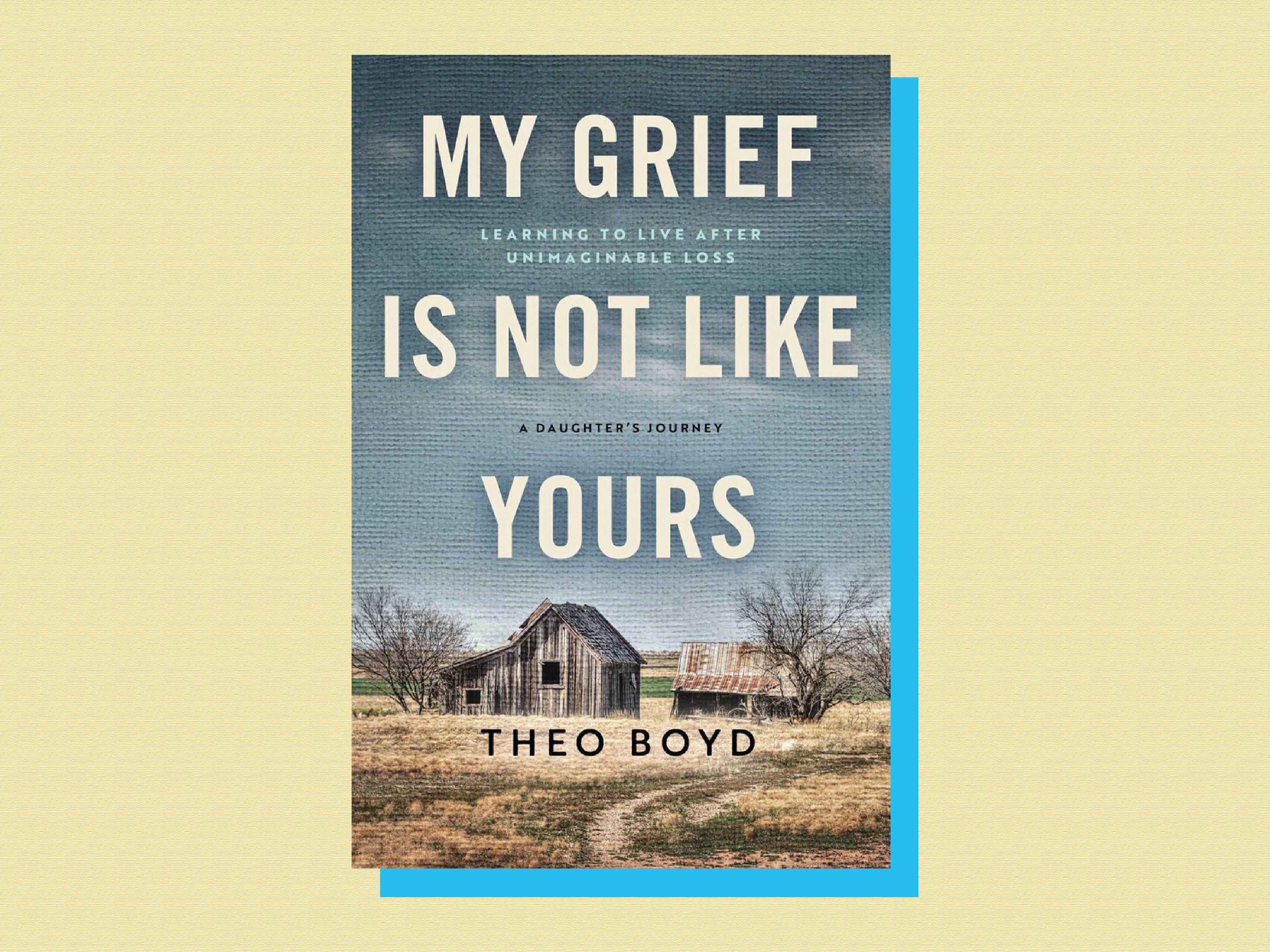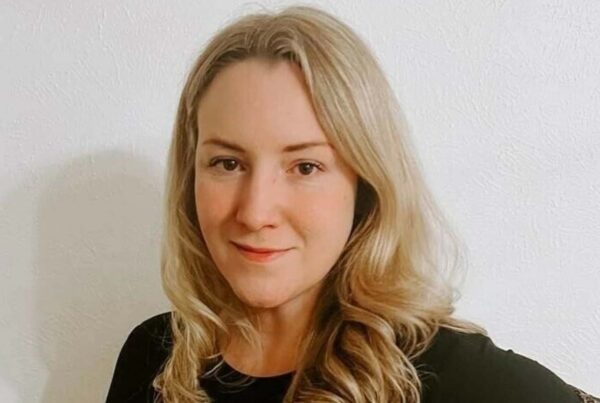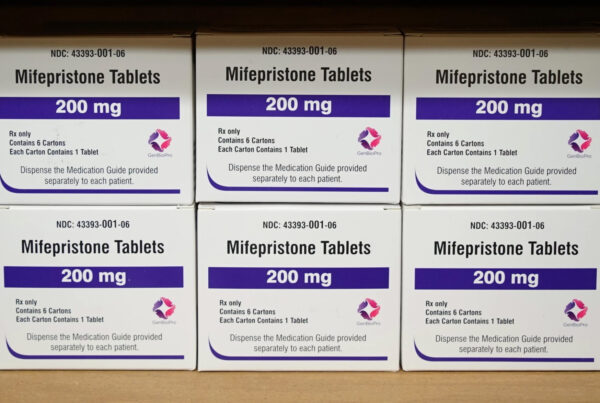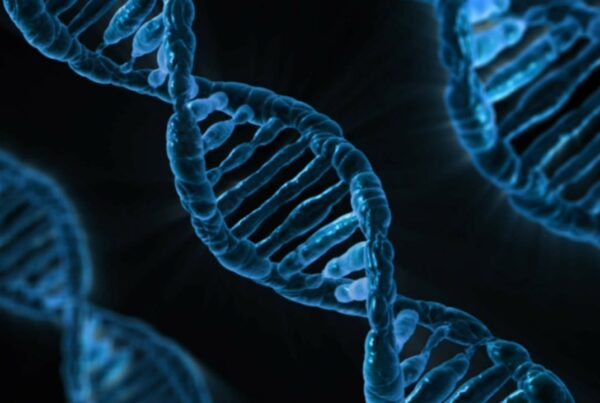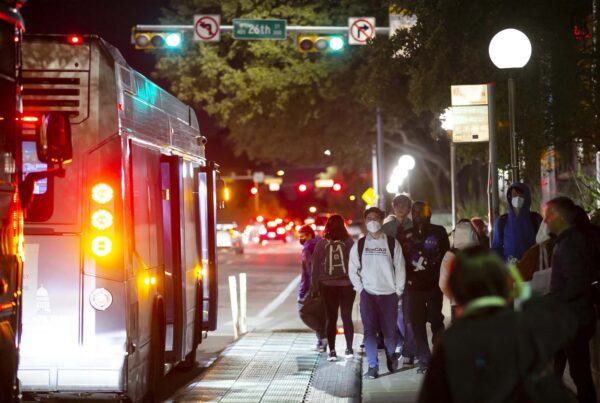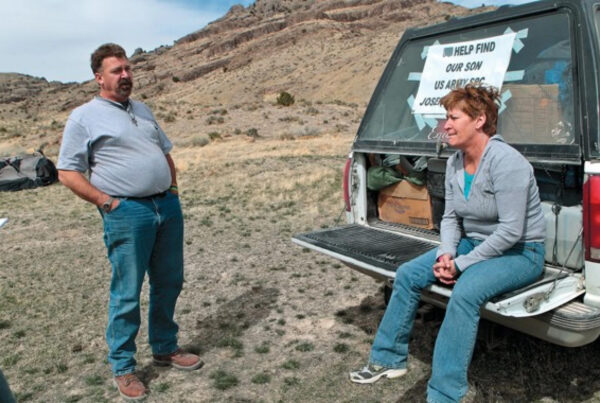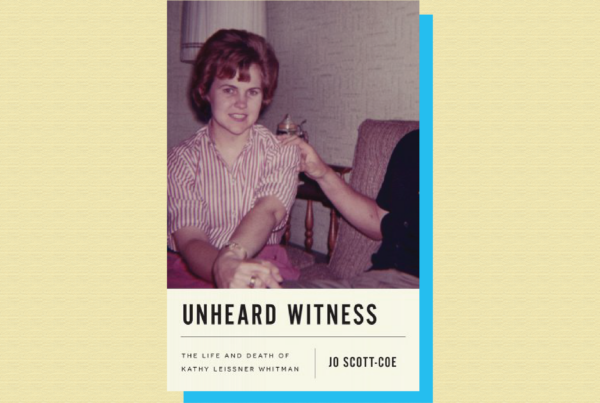There’s a popular saying that grief comes in waves. But when tragic events strike close together, it can feel like a tsunami set to swallow someone whole.
For Texas author Theo Boyd, a tragic accident five years ago would start her on a journey few, if anyone, could truly be ready for.
Boyd spoke with Texas Standard about her new book “My Grief Is Not Like Yours: Learning To Live After Unimaginable Loss, A Daughter’s Journey.” In it, she chronicle’s the pain of complicated grief, how her faith kept her going and how she hopes to give strength to others. Listen to the interview above or read the transcript below.
This transcript has been edited lightly for clarity:
Texas Standard: Before we get into what happened on that fateful day in July of 2019, I’d love to hear a little bit more about you and what it was like growing up in Whitney, Texas. What was it like? What about your parents and your family?
Theo Boyd: Well, you know, we were peanut farmers. We had a small peanut farm in between Hillsborough and Whitney, Texas. So it’s the north Central Texas area. And my sister and I – it’s just the two of us, she’s about four years younger – growing up, we had an amazing life on the farm.
My parents were phenomenal people and my dad was a farmer, a rancher, and he was also a preacher. So we, you know, as he always said, my mother got a double whammy. She was married to a preacher and a farmer.
Let’s talk about what happened back in 2019. It was July, right?
Yes, it was. It was July the 29th. It was a rather cool Monday afternoon. And I was teaching school at Waxahachie High School. I was an English teacher. So that was about an hour away, a little over an hour. And I got a phone call. And, of course, we were still on summer break and I got a phone call at the house and they said there’s been an accident on the farm. So I got down as quick as I could and learned that my dad had accidentally run over my mother with one of the farm tractors.
Oh, gosh.
Yes. They were six months shy of their 50th wedding anniversary. So we transitioned from planning a wedding anniversary party to planning a funeral.
I’m so sorry. You talk about complicated grief and dealing with that. I mean, I think about, you know, your mother’s death. And even though this was an accident, your feelings towards your father… How did you deal with that and what were they?
Well, you know, I never blamed him, not once. It was a freak accident. A tragic accident. The worst kind of accident where you lose the love of your life. And he was in a state of very complicated grief.
And I learned what that term was after all this had happened and started taking my dad to a counselor – she was a very dear friend of mine as well. And then she died suddenly a few months later. But she was with me long enough to teach me the difference in grief and complicated grief, which is now known as Prolonged grief disorder, or PGD.
So about 70% of the population will grieve at some point. Lately, because of COVID, there’s a lot of grieving people out there, but only about 7 to 9% of that 70% population will experience complicated or prolonged grief disorder. And that’s in the way that they lose someone and also in the way that they respond to that loss.
» RELATED: ‘A universal thing we’re all going to go through’: Texas author explores mourning, grief in new book
Well, your story took another tragic turn. What happened with your father?
Yes. So after my counselor passed and we moved closer to be with my dad, my marriage fell apart. So I lost a spouse. And that also is another grief, you know, with divorce. And then last year on Father’s Day, I just kind of got a whim to go and check on Daddy early that morning rather than later and I took breakfast over and I found that he had taken his life.
Well, there was so much your father must’ve been dealing with, clearly. But when this news hit you, was it something you had been worried about earlier?
You know, I was worried early on, but three years later, I had stopped worrying about that. I thought we’d gotten to a better place. But I realize now, looking back, that my dad never got to a real, better place.
Also, his mobility was leaving him. His health was declining. There was just so many factors, and I know deep down he felt like a burden to us, which he was not. But I know that he wanted to leave that farm the way that he wanted to leave it. And I think that the pain of losing my mom, his mobility and all the factors and all the griefs, I think it was just too much.
And I say in my book and I want to say this to the people out there, God will give you more than you can handle, but sometimes that’s part of His plan. So we don’t need to question it. We need to move forward and see what we can do to help others with our pain.
And that’s what I’ve done in the book. I had to write a book that hit me as hard as I’d been hit. And I wrote it. And I find out now that it’s helping other people and that that is where I get my healing.
Theo, I was thinking about the fact that you’ve written the book. You have come on our program and you’re talking about it with such candor and strength. I’m sure many listeners are wondering how you can manage to do that.
I’ve been asked that a lot, and I don’t have a magic answer, but I can tell you it is my friends and my faith. And you’ve got to lean into those friends and you’ll find out who the true friends really are.
Grief separates the children from the adults, and you need to lean into those friends. You need to lean into your faith and just know God’s there. He’s been there the whole time. But it’s very hard when all you see is darkness. But eventually you will see little cracks of light start to break through. And that is what is called hope. And the hope is what gets us through to the next day and the next. And to know that we’re not alone.
There’s no blueprint for grief. We are all allowed to feel the way that we need to feel. I have a quote in the book. It says “Allow yourself to feel anything you want to feel and anything you don’t.” And we must give ourselves some grace in this grief.
Theo, tell us about the title of the book, “My Grief is Not Like Yours: Learning to Live After Unimaginable Loss, A Daughter’s Journey.” What did you mean by “my grief is not like yours”? Could you say more?
I am so glad you asked me because that’s the favorite part of my entire book.
The title never changed from the moment I decided to write the book until it finished. Because what happened was, after my mom’s loss and her funeral, several well-intentioned friends and family would give me unsolicited advice, but they would try to compare or tell me about their loss and what happens when you do that to a freshly grieving person is they feel unheard in their grief. What happens when you start to compare or give them some answer that you think is going to help them, that pushes that grieving individual further down into their darkness.
So I wrote the book with the intention that when people get the book, they own the title for themselves and they can write their grief into the pages of the book. After each chapter, there’s questions relating to the chapter and journaling lines that I give the reader where they can start journaling their own grief in the book on the pages.
So I wrote the book with the intention that the person that holds it is holding their grief and they’re entitled to their unique loss and their unique grief no matter what it looks like.


